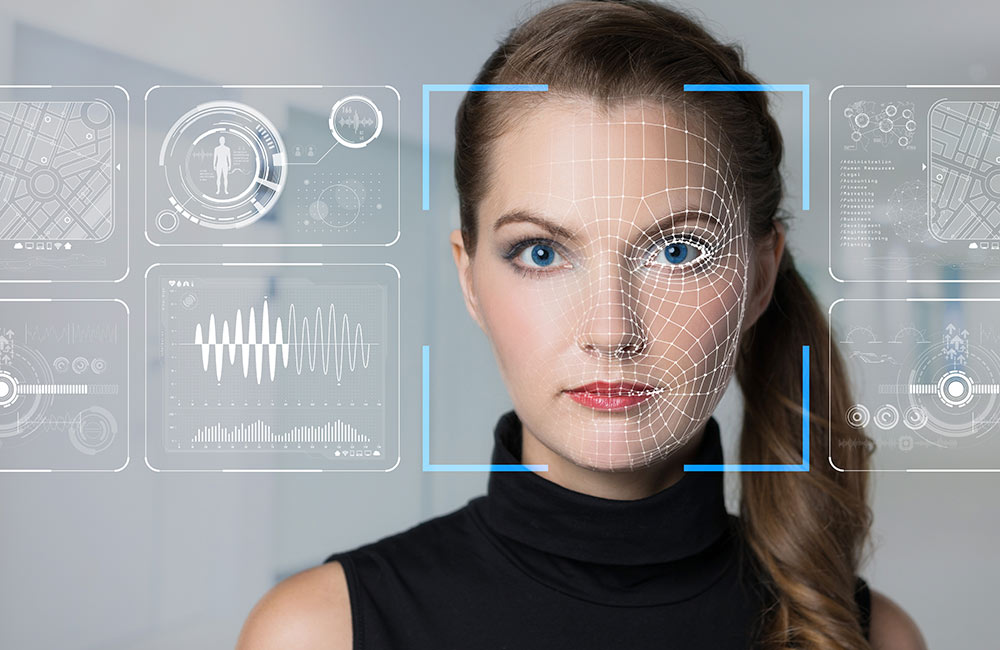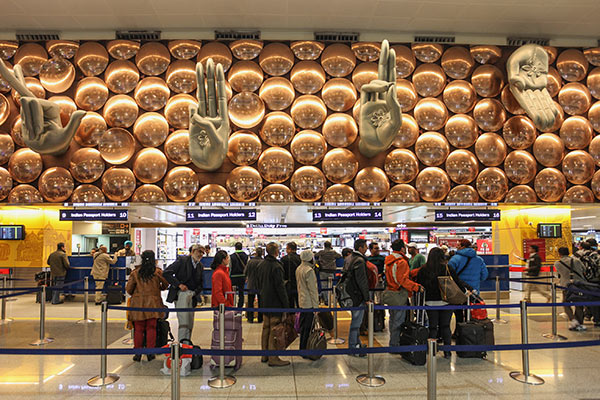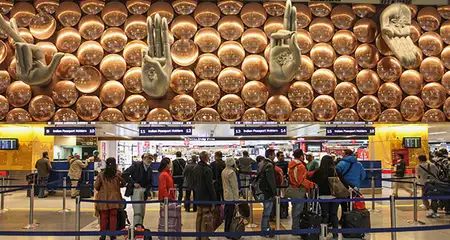Last Friday, the Delhi International Airport Limited (DIAL) rolled out a facial recognition entry system with Vistara at Terminal 3, on a three-month trial basis. With this biometric-enabled technology, the entry of the airline’s domestic passengers would be automatically processed at the airport entrance, security check and aircraft boarding. Once the trial run is successfully completed, this paperless and hassle-free boarding facility will be officially launched at T3 and subsequently at T1 and T2.
How does the facial recognition system work?
There is a registration kiosk where the passengers with valid flight tickets and government ID proofs are enrolled, and their facial details are captured by a camera. Meanwhile, a CISF personnel present at the kiosk validates their documents, physically checks the IDs and confirms on the system.
Thereafter, the passengers approach the departure e-gate fitted with facial recognition cameras and scan their boarding passes or e-tickets. The e-gate opens automatically upon completion of the facial recognition process, giving way for passengers to head to the check-in counters to drop their bags or to the security screening where facial recognition cameras are installed, if one isn’t carrying any.

Delhi Airport | Facial Recognition System Work
Once the security screening is cleared, passengers board their flight through the dedicated boarding e-gates. These gates too open automatically once the camera recognises the passenger’s face.
What happens to passenger data?
During the trial run, the biometric details of passengers are being stored temporarily only to enable the departure process. Once the flight departs, the data is deleted; there is no storage of biometric details by the airport. This technology is in compliance with the guidelines of Privacy-by-Design.
The participation of passengers in this 3-month long trials is purely voluntary and at their discretion, as shared by the DIAL spokesperson. All they require is signing a suitable consent form. He also said that the trials are the demonstration of a biometric-enabled seamless travel experience (BEST).
An initiative under Ministry of Civil Aviation’s ‘Digi Yatra’ policy, the digital processing of passengers based on facial recognition is all set to expedite the boarding process. With one-time registration by the passengers, they can validate their details, every time they travel anywhere in India, through the Biometric Boarding system installed at the concerned airport. Prior to Delhi airport, the trials of this facial recognition process have already been initiated in Bengaluru, Hyderabad and Mumbai.




























